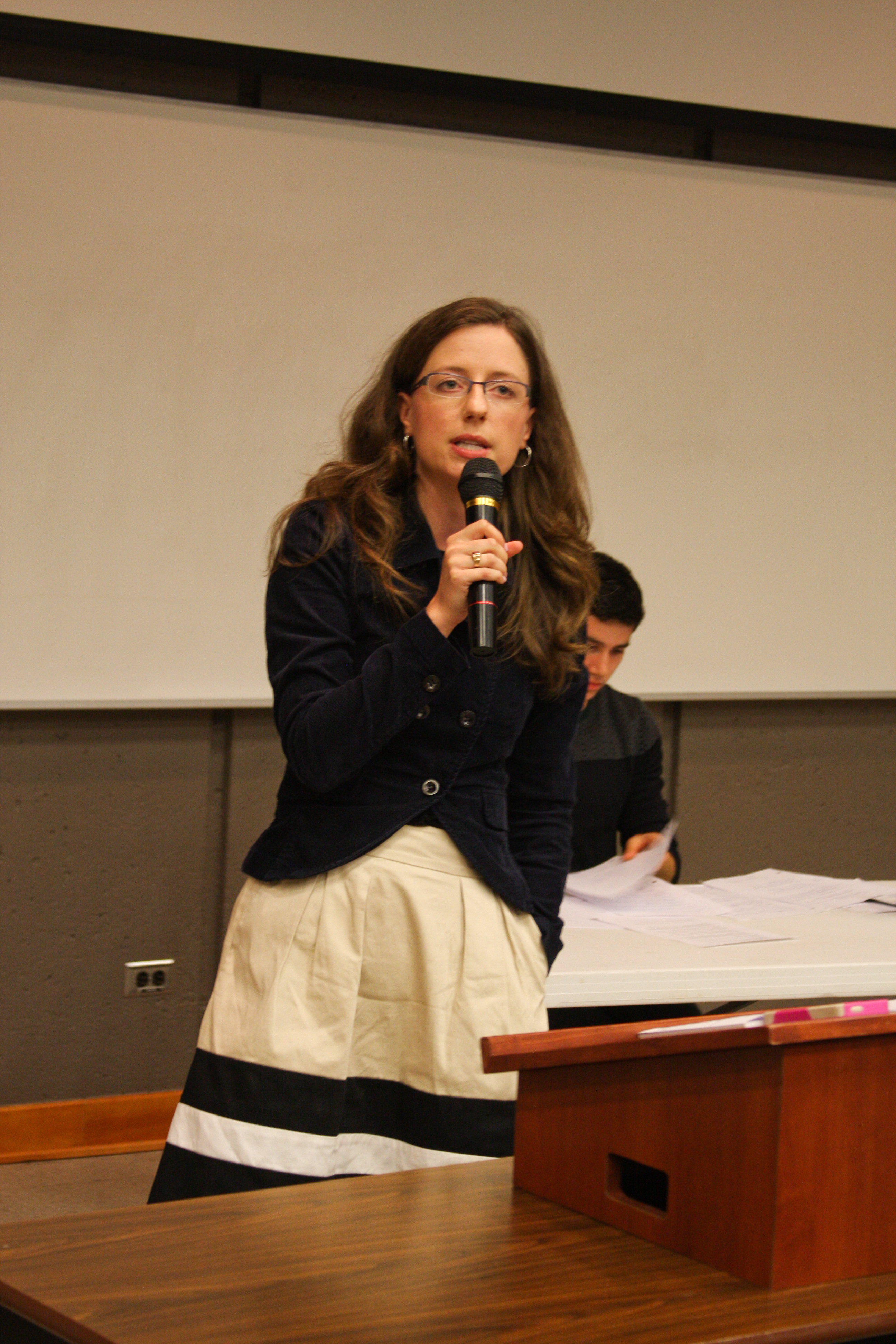From UMSU Council to the pedway, it was hard to shy away from the abortion debate on the University of Manitoba’s Fort Garry campus last week, after a pro-life student group set up a graphic billboard display comparing abortion to genocide.
Another pro-life student group had, in years past, purchased the four-by-eight-foot placards from the Canadian Centre for Bio-Ethical Reform (CCBR) as part of the latter’s “Genocide Awareness Project.” U of M Students for a Culture of Life (UMSCL), the campus’ current pro-life group, decided to resurrect the images this year. They had been planning to do so since May, according to Cara Ginter, vice-president of UMSCL.
“We’ve had those signs in Winnipeg for about 10 years,” said Ginter. “A pro-life student group had put this same display up in the past. I think the last time was in 2004.”
The billboards feature photographs from the Holocaust, the 1994 Rwandan Genocide, and other historical instances of systemic violence against groups, alongside photographs of what appear to be aborted fetuses.
Shortly after the display was set up on Monday morning, a small pro-choice counter-demonstration was organized across from UMSCL’s fenced-in signs. Security Services watched over the two groups for the duration of their attendance.
At UMSU Council, on the first day of the images being displayed, student Ashley James attempted to table an emergency motion to revoke the student group status of UMSCL, on the grounds that the images are offensive and disrupt the ability of some students to learn.
“I feel our ability to focus and feel safe has been compromised,” said James.
Council, however, declined to vote on the motion, citing the need for more time to research the group and their activities. The extent to which council could influence the use of the posters was also unclear.
“I have been advised that as a students’ union and as a council, we have no direct effect on the events that are currently taking place on campus. There is nothing we can do to alter these events, with the exception of lobbying, or writing to the administration,” said UMSU Council chairperson Jeremiah Kopp.
“Revoking our student group status [would be] discrimination,” said Cara Ginter, who told the Manitoban she was aware of the discussion in council. She also noted that UMSCL did not receive approval for their exhibit from UMSU, but from administration.
After three days of demonstrations, UMSCL hosted a debate on Sept. 26 between Stephanie Gray, co-founder of CCBR, and second-year science student J.J. Gerstein.
Ginter said that UMSCL had reached out to professors and politicians to debate Gray, but none would accept. She said the debate was almost scrapped in favour of a lecture, when Gerstein emerged as a potential opponent the day before.
“I definitely think the setup of the debate was fair and equal. We tried for a very long time to find an opponent for Stephanie,” said Ginter.
“Mostly, we received no response. Those that did respond just said ‘no,’ without an explanation as to why.”
Andrew Woolford, professor of sociology and expert on genocide and war crimes, recently spoke to the Manitoban about the graphic materials employed by the CCBR and UMSCL. Woolford advanced the argument that comparisons of abortion to historical instances of genocide are not valid.
“When the claim is made that abortion is genocide one must ask, ‘What group is at stake here?’” said Woolford.
“Fetuses do not in and of themselves constitute a group; they do not engage in the social production of themselves as a group – nor has a perpetrator attributed to them an imagined group status,” he continued.
Furthermore, according to Woolford, while it is important to foster an environment of free speech on university campuses, there must also exist limitations, especially when the dignity of students may be threatened.
“It [ . . . ] does little to foster intelligent debate when everyone who supports a woman’s right to choose, or who has made the difficult decision to have an abortion, is placed in the position of being a genocide denier or genocidaire,” he said.
“If there was a legitimate basis for the genocide claim, then this might be a discussion worth having. But given the unfounded nature of the claim, it is just extremist positioning and undignified name-calling.”
UMSCL-hosted campus events wrapped up last Friday, but more are expected throughout the year.


Prof. Woolford is completely out of touch with reality. A professor who claims that you have to be a “group” to espouse genocide and to speak for yourself and demonstrate against your government?? How confusing. This is what the CCBR is trying to do. Show the reality of first, the deliberate murder of children who are pre-born by legal sanction and by medical professionals under the guise of medicine. Pregnancy is not a disease. What is occurring with procured direct therapeutic abortion is murder of an innocent child. You don’t need to be a specific group to voice a claim genocide if those being murdered can’t speak because they are dead. The act of murder of specific persons over time and usually more than just a few is valid to demonstrate the claim. It has to impact the future generations, family and cultural essence of the persons being murdered. There is no question that Abortion targets specific persons and it is sophistry to claim they are not legal human persons because they are not born yet.
Indeed Fetuses do not constitute a group. But Unborn Babies DO. They have no voice of their own. Just like the Jews of the second world war had no choice in the matter. Genocide??